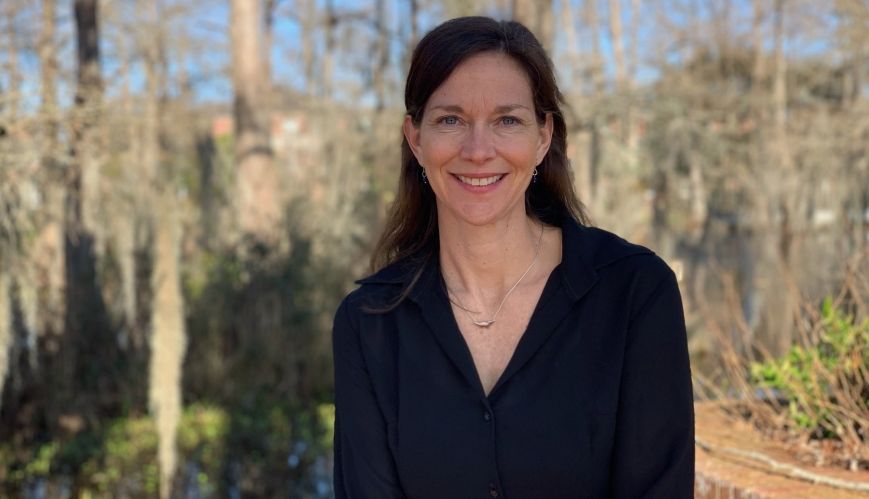Heather Moore - passionate anti-trafficking advocate

Heather Moore - passionate anti-trafficking advocate
20 February 2023
Heather Moore works to ensure there is no slavery involved in Salvation Army supply chains.
Heather Moore has been The Salvation Army’s contact point for modern slavery for many years and was instrumental in research and advocacy support for the Modern Slavery Act. She now has a new appointment – Responsible Sourcing Manager – trying to ensure there is no slavery involved in supply chains for goods and services the Army uses. Others writer Simone Worthing recently caught up with Heather and chatted about her new role.
What does the role of Responsible Sourcing Manager entail?
Heather: My role is to build and embed systems of supply chain due diligence. This enables us to understand where modern slavery and other human rights risks lie, and to enable people in the organisation dealing with suppliers to address those risks effectively. The procurement world has been under a lot of pressure to research social, environmental and governance risks in sourcing goods and services – not just making sure they have certainty of supply but also balancing that with risks to workers in the supply chain. With the passage of Modern Slavery Act, which The Salvation Army was heavily involved in, our procurement team became involved in modern slavery reporting which is led out of the risk and compliance area because procurement is really where the rubber hits the road.
Is the work you are doing potentially something other organisations could use?
Heather: Because of our unparalleled understanding of the victim survivor experience and our capacity as a service organisation, we do have some moral authority in advising businesses about how to tailor their standard business processes to be more victim- and survivor-centric. The procedures I’m setting up involve eliciting responses from potential suppliers about how they’re managing their modern slavery risks. I’ve written draft guidance for staff on what to do once a supplier or procurement is deemed to be high risk and how to engage that supplier, because there’ll be some goods and procurements for which there may not necessarily be an alternative supply. So we need to work with positively with our suppliers.
What does a typical day at work look like for you?
Heather: I wear a couple of hats – my typical day varies between my PhD work and my responsible sourcing hat. I’m studying for a PhD in law at RMIT university which involves interdisciplinary research looking at how to structure decision-making for organisations to foster more victim-led, victim-centered remediation when slavery is detected. The Salvation Army is supporting that research in two ways, allowing me to allocate time for that research and also participating as an industry partner. This year I'll be looking to start some laboratory and field experiments with industry partners where I put a remediation tool into the field and test how it goes and what is needed to enable organisations to make more optimal decisions when it comes to responding to cases of modern slavery in their supply chains.
Why should The Salvation Army, primarily as a church, be involved in the anti-trafficking movement?
Heather: There’s a theological mandate – we are called by God to set the oppressed free: “Learn to do good; seek justice; correct oppression” (Isaiah chapter 1 verse 17). “Defend the weak and the fatherless. Uphold the cause of the poor and oppressed” (Isaiah chapter 82 verse 3). It’s not only about setting people free or rescuing people, it’s also about addressing the systemic drivers of oppression.
What drives you to get up each day?
Heather: First and foremost, I’m motivated by my experiences of working with and walking alongside survivors. It has been the privilege of my life to be part of their journeys – they are some of the strongest, most inspirational people I’ve ever met. I really hate to see them portrayed as victims and as broken because, while their experiences are indescribably horrible, the real story is that they go on. I feel called to carry that message forward and be a champion for representing survivorship and triumph over adversity, and that’s why I’ve stayed in the policy and advocacy space for such a long time – and now research. I feel so gratified that I get to dive deep and really apply myself.
Comments
No comments yet - be the first.